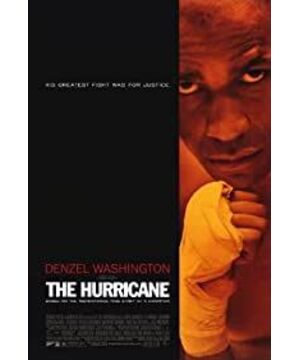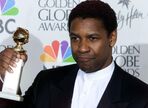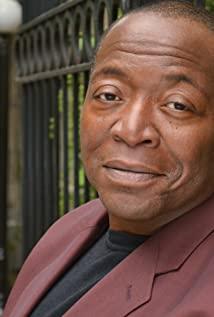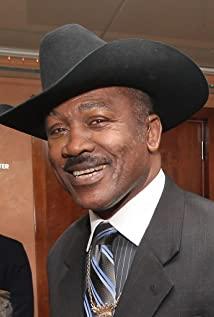Soon after watching it, you know Rube’s life and how Lesra was adopted, but you almost forgot about the murder case at the beginning of the film. Dare to expect to sit through the bottom of the prison. Is the case complicated? Can Rube's grievances be cleared up? It's too easy. The case itself is simple, and it is not difficult to overturn Rube's conviction, but no one will do it. His skin color seemed to determine that he was a murderer.
Lesra and Rube, you can hardly say who saved whom. The first book Lesra bought was Rube’s autobiography. He felt his luck from Rube’s misfortune; Rube’s hopeless heart was also ignited by Lesra’s experience and the flames of suspicion were ignited by the bad guys he had always believed. The great deeds not only brought Lesra to hope, but also finally saved him with will and perseverance. You see, the quality of a person is not determined by the skin color, and there is absolutely no need for the hatred between people to arise because of the skin color.
The story is so touching, but real people and real things have changed. I can't help but explore what the real Rubin is like.
According to the information on the Internet, "
Rubin "Hurricane" Carter (May 6, 1937 – April 20, 2014) was a Canadian middleweight boxer……
Carter was born in Clifton, New Jersey,……
Beginning in 1980, Carter developed a relationship with Lesra Martin, a teenager from a Brooklyn ghetto who had read his autobiography and initiated a correspondence. Martin was living with a group of Canadians who had formed an entrepreneurial commune and had taken on the responsibilities for his education. Before long, Martin's benefactors, most notably Sam Chaiton, Terry Swinton, and Lisa Peters, developed a strong bond with Carter and began to work for his release.
Their efforts intensified after the summer of 1983, when they began to work in New York with Carter's legal defense team, including lawyers Myron Beldock and Lewis Steel and constitutional scholar Leon Friedman, to seek a writ of habeas corpus from US District Court Judge H. Lee Sarokin.
Upon his release, Carter moved to Toronto, Ontario, Canada, into the home of the group that had worked to free him. He worked with Chaiton and Swinton on a book, Lazarus and the Hurricane: The Untold Story of the Freeing of Rubin " Hurricane" Carter, published in 1991. He and Peters were married, but the couple separated when Carter moved out of the commune.
On April 20, 2014, Robin Carter eventually lost to prostate cancer. The one who listened to his last words in front of the bed was John Artis, an old friend who was accused of murder together with him at the time. It was this old friend who accompanied him on the last journey of his life. "
There is also a paragraph "According to bail bondswoman Carolyn Kelley, in 1975–1976 she helped raise funds to win a second trial for Carter, which resulted in his release on bail in March 1976. On a fund-raising trip the following month, Kelley said the boxer beat her severely over a disputed hotel bill. The Philadelphia Daily News reported the alleged beating in a front-page story several weeks later, and celebrity support for Carter quickly eroded, though Carter denied the accusation and there was insufficient evidence for legal prosecution.[18][36] Mae Thelma Basket, whom Carter had married in 1963,[4] divorced him after their second child was born, because she found out that he had been unfaithful to her."
There is always a gap between reality and movies. Rube is not a good person to watch this passage. So many celebrities thought about helping him. Boxing champion Ali and George Louis publicly supported him. Bob Dylan read Carter’s autobiography, went to jail to meet Carter, and wrote a song for him that lasted more than 8 minutes. Zhong's song-"Hurricane". But because of his popularity and social status, he has been in prison for 20 years; a country in the United States that follows the law of suspicion of light and no suspicion of crimes has sentenced Carter to life imprisonment without objective evidence at all; It can be said that in that era, racial discrimination was grand, common and open. Of course, Carter became a victim of racial discrimination, which may also be related to his fierce remarks about racial discrimination because of his origin.
The reason why a person becomes a great person depends on his attitude in adversity and despair. Carter wrote in his autobiography: "I refused to put on a prison uniform, I went on a hunger strike, refused to do the work of a prisoner, if I could, I even refused to breathe the air in the prison." Carter began to study the law in prison and reorganized the case. For clues, he kept applying for appeals in order to clear his own crimes. Until 1985, Federal Court Justice H. Lee Sarokin ruled that Carter was convicted of racial discrimination. At the age of 48, Carter finally regained his freedom. After being released from prison, he became the first president of the "Association in Defense of the Wrongly Convicted" (Association in Defense of the Wrongly Convicted), and he became a public speaker, wandering around to help others. The most remarkable thing is that he did not retaliate against the society, but worked hard to help those who were treated unfairly.
Carter was able to reverse the case because the situation of racial discrimination in the United States eased in the 1980s. There is a humorous scene in the film. When three Canadians visited the home of an eyewitness, a Canadian said: oh u' re black! The black wife said: "oh u're white!" I thought it was the beginning of the discord, and things were going to be yellow. I didn't expect that later when the witness's widow brought out her freshly baked snack, she said deliberately : "You will definitely pick the white buns~" It seems quite happy.
The most sublime thing in the film is, of course, the phrase "Hate sent me to jail, and love will make me see the sun again." There are two other things that touched me the most. One is Carter holding Lisa's hand and saying, "I ask myself, I Can I do this for others? I can’t do it. So I understand and be grateful if you want to leave..." This sentence shows that Carter really let go of hatred from his heart, and his line of defense of the same racism broke. Now, start to learn true love, maybe the other person is a white man. Another shocking thing is Carter's saying that "no desire or desire can make him indestructible", so that the cold and hard line of defense was finally melted by love.
Finally, I put two photos of Carter himself: one was when he was a boxer, and the other was after he was released from prison, he was still helping others to get justice. In the lower right corner is him and bob dylan meeting.
View more about The Hurricane reviews










